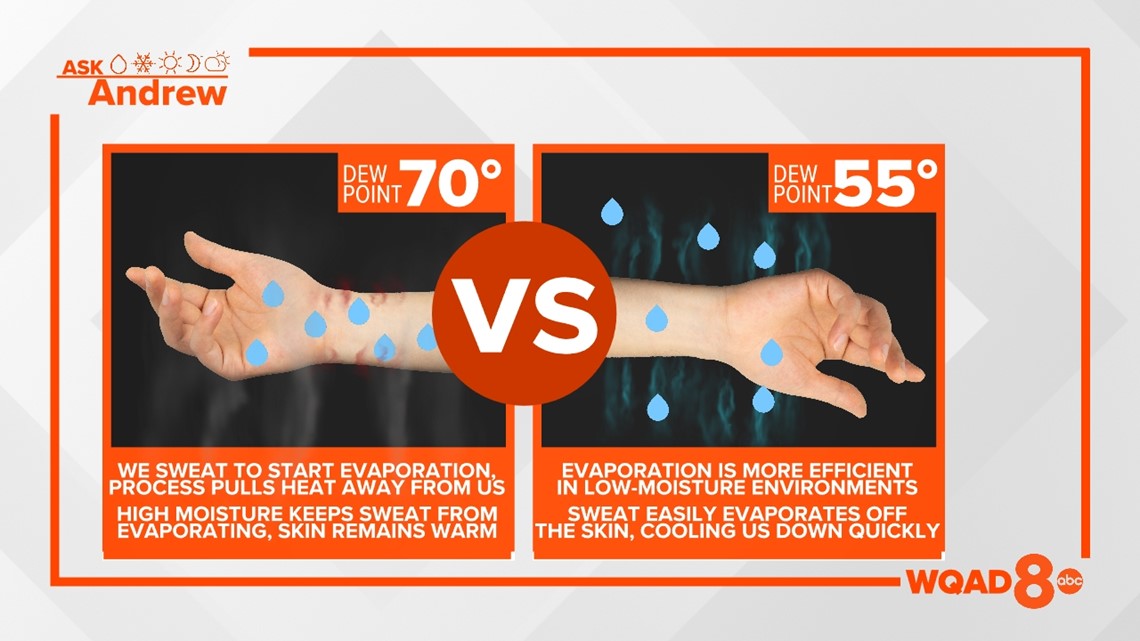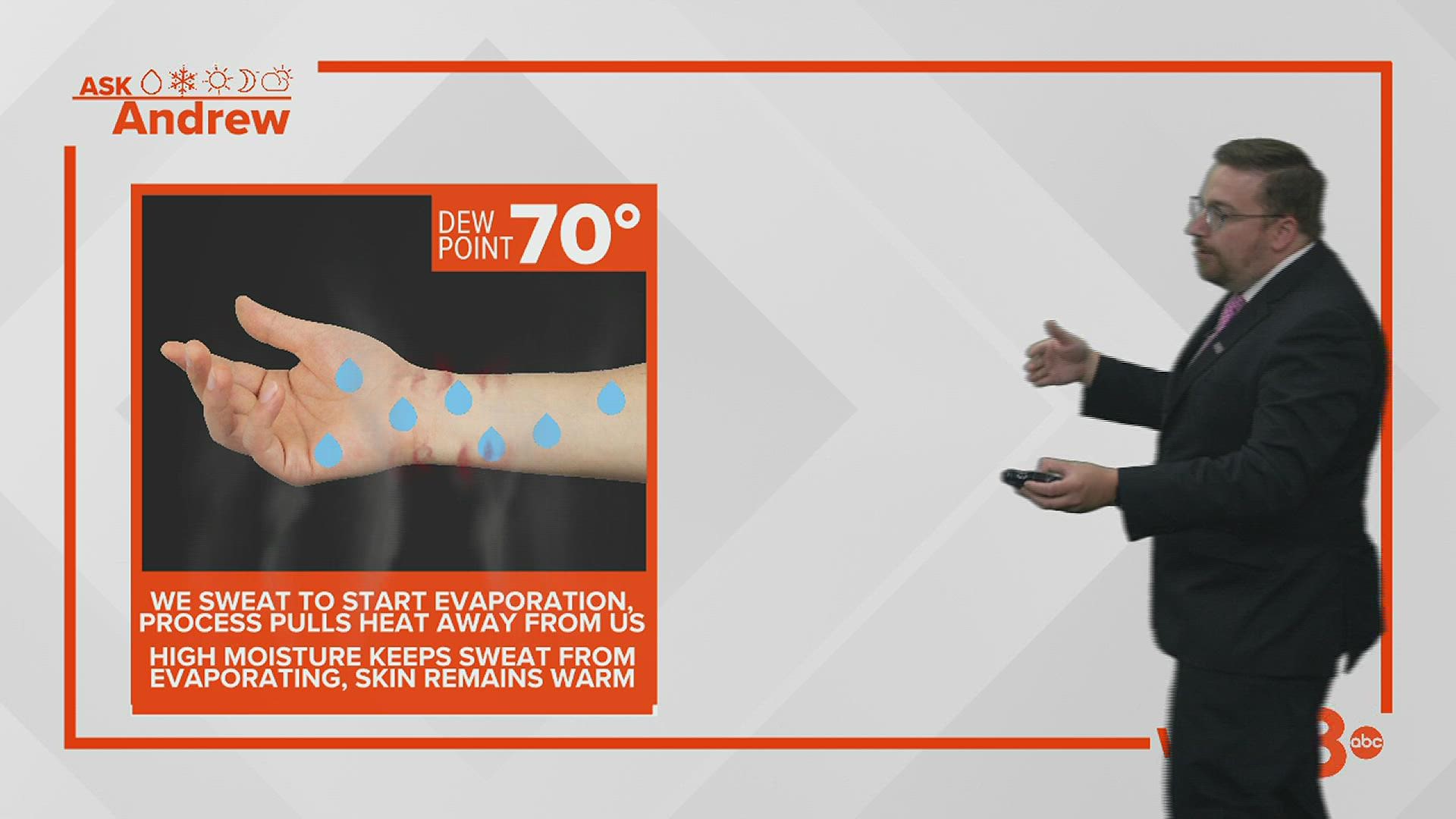MOLINE, Ill. — It's that time of year! Time to sweat it out and complain about the heat and humidity levels. But did you ever stop and wonder why more humid days tend to make the outside air feel hotter, or why we use the heat index value this time of year? A lot of it has to do with how our bodies regulate our internal temperature.
Take this scenario as an example: You're showerings, and as soon as you shut the water off, you race for a towel to dry off because suddenly the air feels a lot cooler than it did while the water was spraying on you. Why? Moisture has started to evaporate from your body, cooling the surface of your skin.
On hot and humid days, like the example on the left side of the graphic below, the air surrounding our skin is already full of moisture. When we sweat, the goal of this process is to cool the surface of our skin by evaporating that water into the surrounding air. When that air is already full of water, the sweat has nowhere to go, so it lingers on our skin and makes us feel miserable.


In stark contrast, bring in a much drier air mass with dew point temperatures in the 50s and our natural cooling process goes into overdrive. With a lot more room in the surrounding air mass for evaporating water, our bodies cool quite efficiently.
It's this reason why we use a heat index or "feels-like temperature" during the warm season, to convey impacts to our bodies based on the combination of hot temperatures and higher levels of moisture.
Have a question you would like to ask for a future "Ask Andrew" Segment? Submit it, here!

